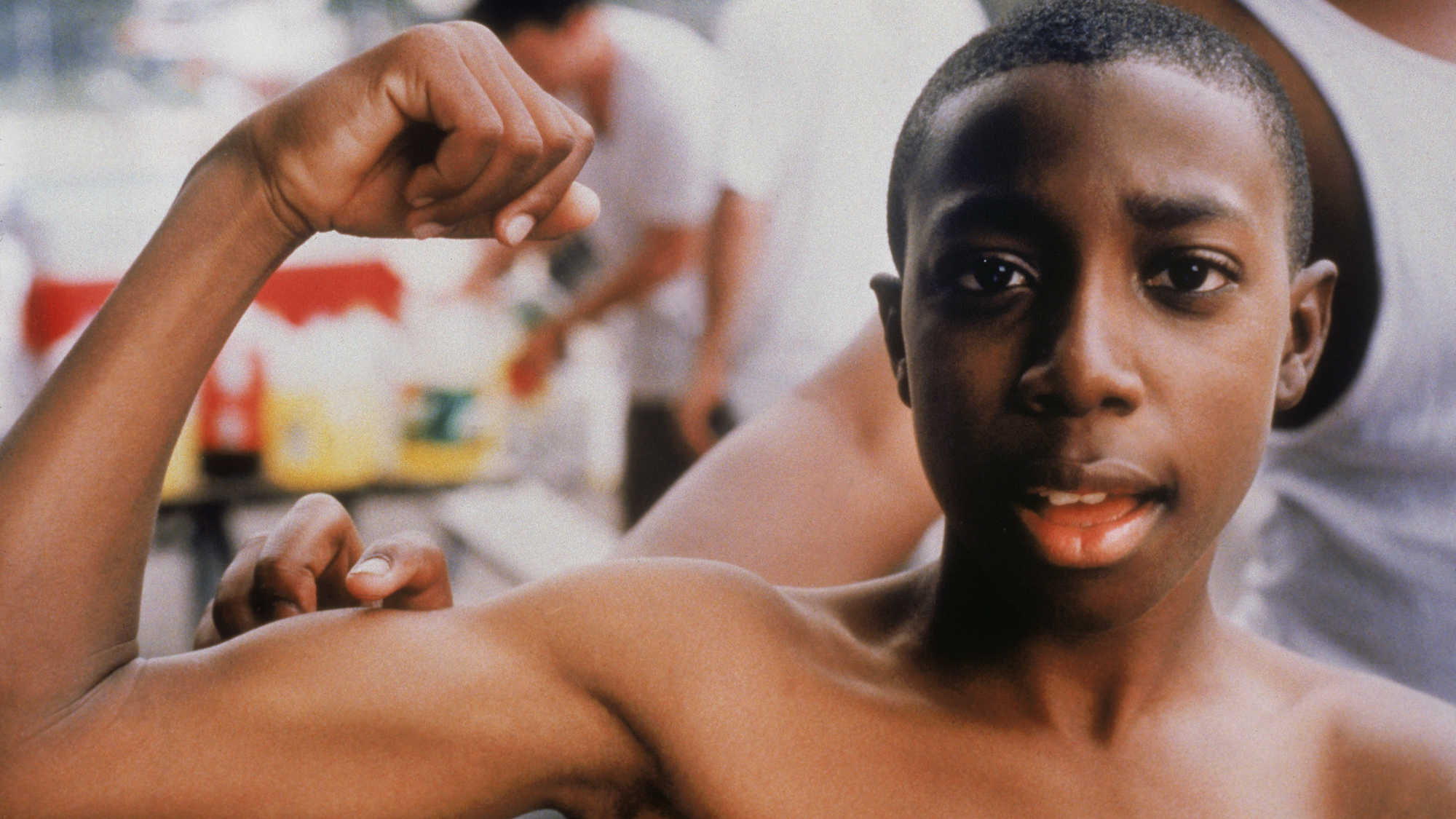
Screened as part of NZIFF 2001
George Washington 2000
‘I like to go to beautiful places, places that are nice and calm and quiet,’ says Nasia (Candace Evanofski) in George Washington. This dream of a movie is set in such a place; with its delicate shifts of tone, it could be a fairy tale by Faulkner. The picture is also bursting with talent, from its very young cast – most of the actors are preteens to 14-year-olds – to its first-time feature writer and director, David Gordon Green, who puts his trust in his ensemble. It comes through for him.
The movie seems to be an antidote to the forced and gruesomely engineered kid comedies that exaggerate trite incidents in the protagonist’s life. What Mr Green does is slow down the pace and ease the film into the rhythms of the South, where nothing is hurried. (It was filmed in North Carolina, an area that’s both lush and run down, where hunks of rusting metal compete with the glowing greens of the landscape.)…
George Washington is essentially plotless but lively and inviting nonetheless. The cinematographer Tim Orr has accomplished something remarkable: the African-American children seem to have been lighted from within, and their skin has a slight burnished glow, as if the sun is deftly tracing across their bodies…
Nasia narrates the film, and Ms Evanofski has the natural grace and charisma of someone born to sit in front of the camera, teasing it as it tries to get to the heart of her talent. She’s the center of a love triangle with George and Buddy, whom she breaks up with at the beginning of the movie. ‘She dumped me last week at church; she had this glaze in her eyes that made me tingle all over,’ Buddy rhapsodizes.
The movie takes the characters as seriously as they take themselves, and adults and kids have conversations as if there were no boundaries between them… Like a Faulkner tale, George Washington takes a dark turn, but no one is punished for the sake of melodrama…
Nasia believes that George is the key to her future and the world’s future as well – she calls him George Washington – and she makes him worthy of being the picture’s focal point by fixing her amber eyes and sassy intensity on him. ‘I hope you live forever,’ she tells George and, thanks to her and this movie, he will. — Elvis Mitchell, New York Times, 09/29/00